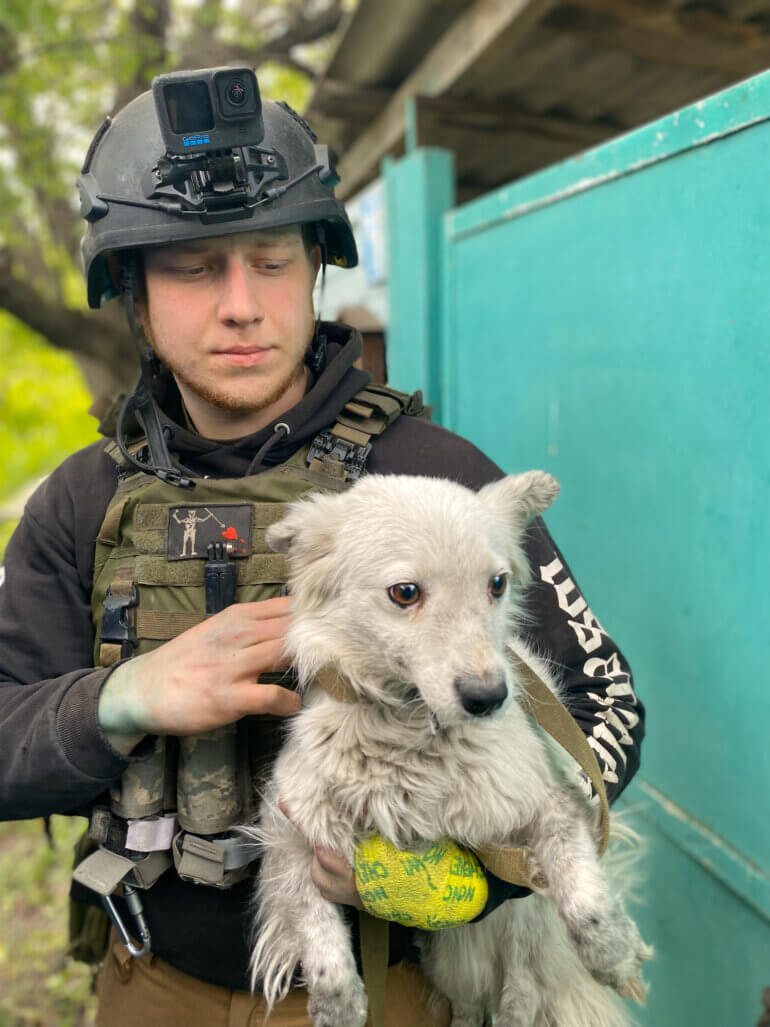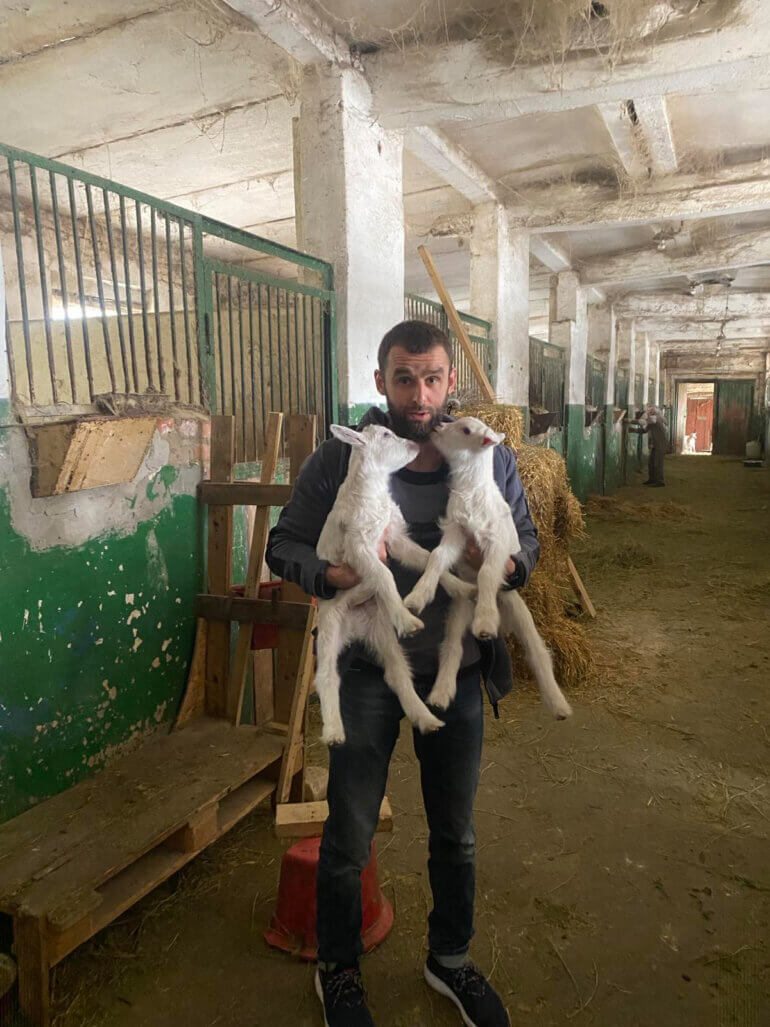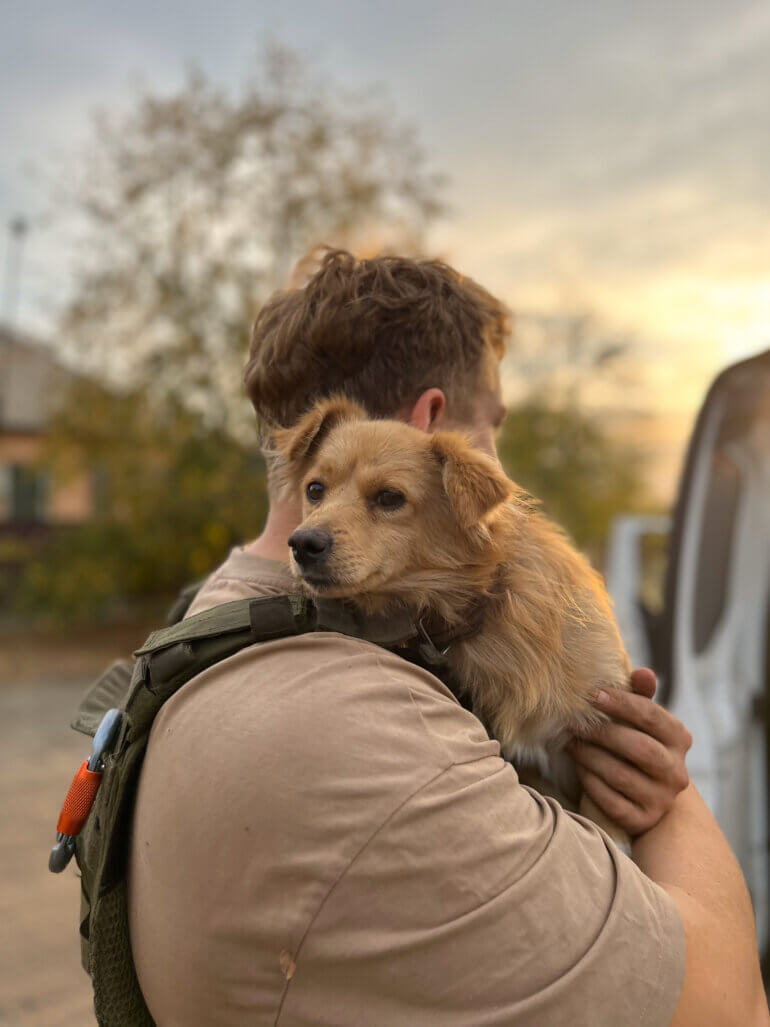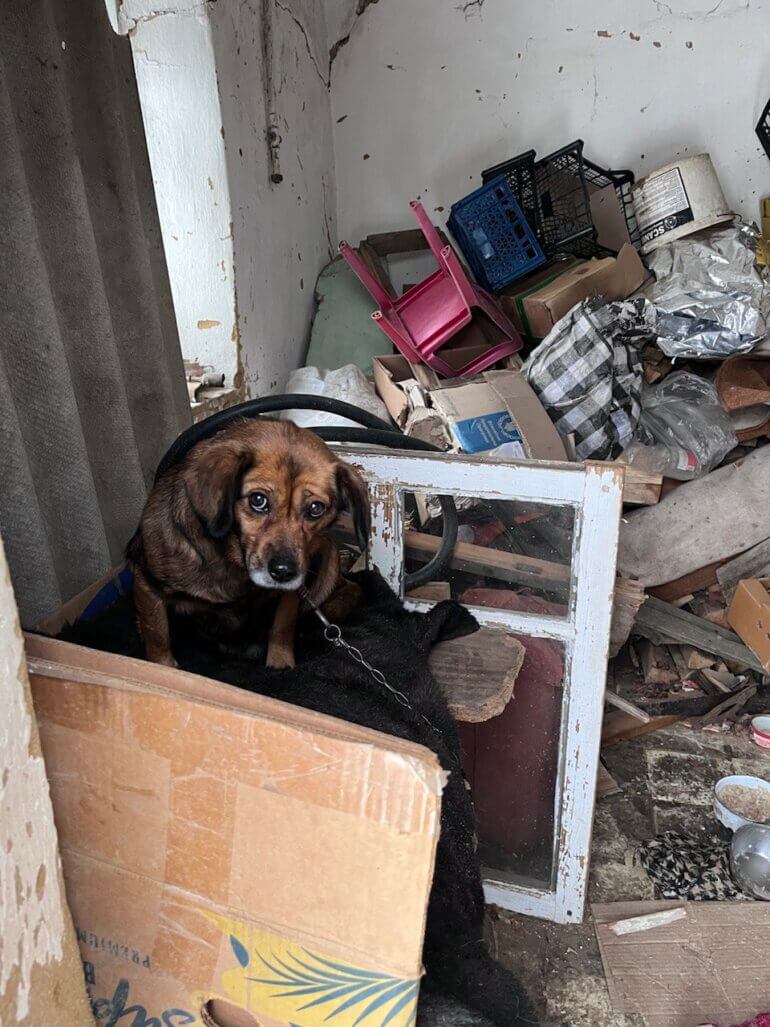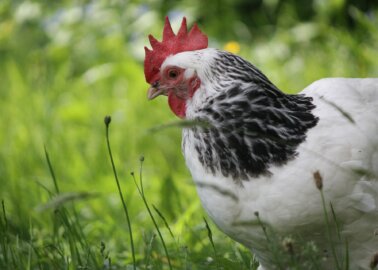Animal Rescue: 1,000 Days of War in Ukraine
What does a day in the life of an animal rescuer in Ukraine look like? PETA Germany spoke with Igor Sobko, deputy head of Animal Rescue Kharkiv, about life amidst the war.
One Thousand Days of War in Ukraine: Interview With an Animal Rescuer
PETA Germany: Igor, it’s unimaginable that the war has been going on for so long—1,000 days. How do you view this situation?
ARK: To be honest, I have forgotten what Kharkiv looked like before the war, what our streets looked like, what life was like here. I feel like my head only remembers it with the military everywhere, destruction all over the city, air raids, and daily attacks on our city and region. But we stick together at ARK; our goal as a community is to help as many animals as possible. That keeps us going – every day is different, and we are constantly rescheduling and adapting to the situation.
PETA Germany: What does PETA’s Global Compassion Fund support mean to you and the animals in this situation?
ARK: That’s easy to put in a nutshell—We and the animals would be lost! We don’t have the financial means to run a project like this. The exchange, the economic and moral support, the joint planning—all this keeps us going because we know that it will continue—come what may. We are very grateful for the great help from PETA Germany and the Global Compassion Fund.
PETA Germany: What is the biggest challenge in everyday life?
ARK: It’s hard to put into words. Probably coming to terms with we don’t know exactly what will happen next. Every day can bring change – big or small. Depending on how the war changes, how much our region is under attack, how the front line is, where the teams are rescuing animals together with the military. Every step is like walking on thin ice – we make everything as safe as possible. But security is just a feeling – there is no security you can rely on here. We are constantly vigilant, adjusting everything, and have our eyes everywhere because the team risks its life on every mission. We are at the limit because the need never ends; every day, new animals arrive that urgently need care. The pressure is extremely high – without PETA Germany as a vital partner, there is no way we could manage on this scale.
PETA Germany: How do you bear it all?
ARK: With God’s help and finding any humour, we can in all the pain. The solidarity and support give us strength. Besides, there is no alternative. Leaving Kharkiv and the animals is not an option – we are needed here more every day. We will carry on, come what may, but the hope for peace accompanies us. We must never give up hope!
6 Ways PETA’s Global Compassion Fund Is Helping Animals in Ukraine
Since the beginning of the war in Ukraine, PETA Germany and its partners have been building a robust network of rescue workers – saving more than 17,000 cats, dogs, horses, and others so far. The logistics of supporting animals in a warzone is immense – a Herculean task amidst the storm of aggression. Despite the hardship, ARK and PETA agree that abandoning animals in need is not an option.
“Leaving Kharkiv and the animals is not an option – we are needed here, more and more every day. We will carry on, come what may, but the hope for peace accompanies us. We must never give up hope!” – Igor Sobko, Deputy Head of Animal Rescue Kharkiv.
Since February 2022, Global Compassion Fund Support Has Been Used to;
- Create and maintain 1,300 safe shelters for hundreds of dogs, cats, horses, sheep, goats, chickens, pigeons, geese, ducks, swans, fish and many other species.
- Construct a veterinary clinic that can house and assist up to 180 seriously ill and injured animals to receive life-saving treatment.
- Establish a spay/neuter project that sterilises 150 animals a month to reduce the suffering and distress the birth of thousands of more animals would cause.
- Deliver nearly 3.7 million pounds of vegan food to Ukraine for dogs, cats, and other animals.
- Purchase and maintain a fleet of vehicles to transport animals. Due to the extreme strain of travelling in a warzone, the cars often have to be replaced or repaired, like when one’s engine was struck and destroyed by a Russian drone.
- Provide medical care and quarantine space for at least four months per animal in accordance with EU regulations. Most animals are reunited with their evacuated guardians; others are placed with animal-loving people via partner animal shelters in Europe.
PETA’s Global Compassion Fund is supported exclusively by the contributions of kind individuals like you. Your gift helps PETA entities and partners create positive, sustainable change in corners of the Earth where animals desperately need assistance – and may have no other hope. Your generous support helps make the world a better place for all animals. Please give what you can today.

